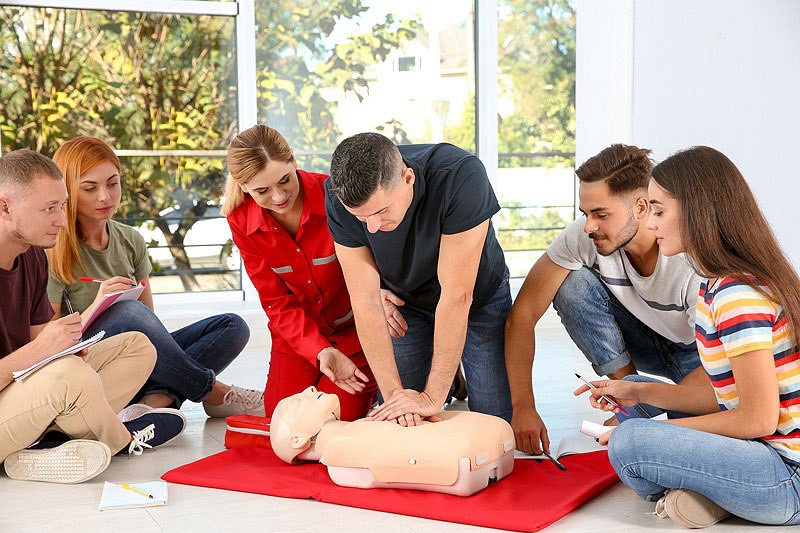First Aid & CPR Certification: Empowering Safe Workplaces in Dublin, Cork, Galway, and Beyond
In today's fast-paced and unpredictable work environment, ensuring the safety and well-being of employees is more crucial than ever. One of the most effective ways to bolster workplace safety is through First Aid and CPR Certification. This comprehensive training not only equips employees with essential lifesaving skills but also prepares organizations to handle emergency medical situations effectively.
Why First Aid & CPR Certification is Essential
Having certified personnel within your organization significantly enhances the overall safety culture. The importance of First Aid training cannot be overstated, especially in bustling cities like Dublin, Cork, Galway, Limerick, and Waterford.
- Immediate Response: Certification enables employees to respond promptly to emergencies, reducing the time it takes to get professional medical help.
- Increased Confidence: Well-trained staff feel more prepared to act decisively in emergencies, fostering a proactive safety culture.
- Compliance with Regulations: The Health and Safety Authority (HSA) mandates specific first aid requirements, and training helps businesses adhere to these regulations.
Key CPR and Emergency Response Skills Acquired
Through a comprehensive First Aid Training Course, employees learn vital CPR techniques and emergency response protocols. Some key skills they acquire include:
- Performing CPR: Understanding how to use CPR effectively can significantly increase survival rates during cardiac arrests.
- Choking Relief: Employees learn how to help someone who is choking using the Heimlich maneuver and other emergency techniques.
- Wound Care: Training includes addressing cuts, bruises, burns, and other injuries to prevent further complications.
- Using AEDs: Participants familiarize themselves with Automated External Defibrillators (AEDs), critical for rapid response in cardiac emergencies.
Understanding Compliance with Irish Workplace Safety Regulations
Health and safety regulations in Ireland necessitate that workplaces are equipped with necessary first aid provisions. The HSA outlines specific requirements:
- First Aid Needs Assessment: Every workplace must conduct an assessment to determine first aid needs based on the nature of work, employee headcount, and potential hazards.
- Designated First Aid Personnel: Profile the number of trained first aiders based on the HSA regulations to ensure compliance.
- First Aid Equipment: Ensure that proper first aid kits and resources are accessible within the workplace.
Benefits of First Aid Certification for Employers and Employees
Obtaining First Aid and CPR certification is a win-win for employers and employees alike. Here’s how:
- Enhanced Workplace Culture: Establishes a strong commitment to safety, making employees feel valued and cared for.
- Reduced Insurance Costs: Companies with trained first responders might benefit from lower worker’s compensation insurance premiums.
- Improved Employee Morale: Knowing that colleagues are trained in first aid can foster teamwork and trust.
- Legal Protection: Providing first aid training can protect businesses against liability claims in case of workplace accidents.
Essential Steps in Workplace Emergency First Aid Procedures
In emergencies, it's vital to follow a set procedure to ensure the best outcomes. Key steps include:
- Assess the Scene: Ensure the environment is safe for both the first aider and the victim.
- Call for Help: Confirm emergency services are contacted. This should happen simultaneously as helping the victim.
- Provide Care: Use your first aid knowledge to provide immediate care until professional help arrives.
- Document the Incident: Keep a record of the events for future reference and compliance situations.
Choosing the Right First Aid Course: Online vs. In-Person Training
With the rise of digital platforms, organizations have the option to select between online First Aid courses and traditional in-person training. Here are key considerations:
- Convenience: Online training can be more flexible, allowing employees to learn at their own pace.
- Hands-On Practice: In-person courses provide essential hands-on practice, especially for CPR techniques.
- Networking Opportunities: Live classes offer opportunities to connect with peers and experienced instructors for richer learning.
Improving Safety Culture and Reducing Workplace Injuries with First Aid Training
Organizations that prioritize first aid training see a marked improvement in safety culture. Enhanced training not only leads to fewer accidents but also instills a sense of responsibility and vigilance among employees.
- Proactive Safety Measures: Assessing risks regularly ensures potential dangers are mitigated.
- Safety Drills: Conducting regular drills ensures staff are prepared for real-life situations, solidifying their learning.
- Encouraging Reporting: Employees trained in first aid are more likely to report near misses and safety concerns.
Conclusion & Call to Action
In conclusion, First Aid and CPR certification is not merely an optional training program; it is a critical component of workplace safety and compliance in Ireland. Through proper training, employees become equipped to handle emergencies effectively, foster a culture of care, and assist in meeting the necessary legal requirements.
Don't wait for an emergency to occur. Enroll in an accredited First Aid and CPR training course today to safeguard your workplace and empower your employees. For inquiries, contact us at [email protected] or visit our website for more information.



 349,500 Offered Certificates
349,500 Offered Certificates
 24/7 Online Training
24/7 Online Training
 Money Back Guarantee
Money Back Guarantee
 Fully Accredited Courses
Fully Accredited Courses
